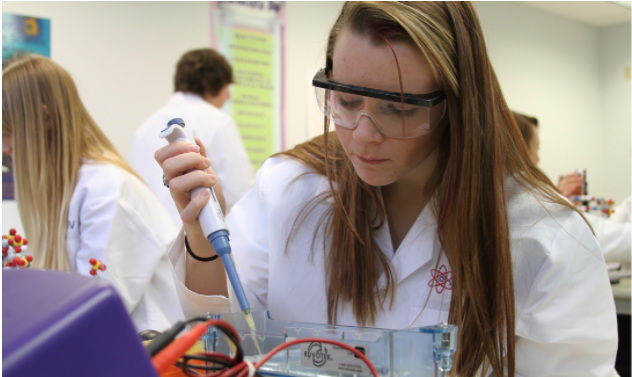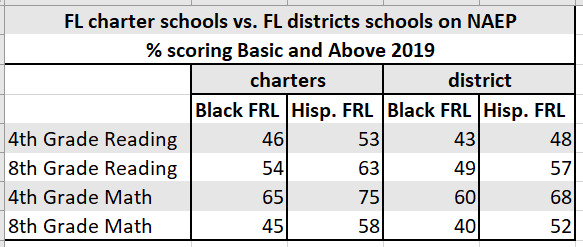
The charter school movement in Florida started with a single school in Miami in 1996. Now it’s Florida’s most popular school choice option, with nearly 700 charter schools serving 330,000 students.
At the quarter century mark, Florida’s charter school sector continues to generate new fans among parents, including … me. ????
Here’s 25 reasons why, in no particular order …
1. T. Willard Fair. If movements are judged by the company they keep, then it’s worth noting charter schools are backed by a who’s who of icons. Trail blazing and fiercely independent, Fair, the head of the Urban League of Greater Miami, co-founded that first charter school with …
2. Jeb Bush. Expanding parental choice and learning options, including charter schools, was/is vital to Gov. Bush’s vision. The Republican governor got a little help from …
3. Lawton Chiles, his Democratic predecessor. “Walkin’ Lawton” signed the charter school bill into law in May 1996, after it passed the Legislature with huge bipartisan support.
4. Rosa Parks. No direct Florida tie. But if you find anybody still clinging to “charter schools are a right-wing thing,” please let them know the First Lady of Civil Rights tried to start one.
5. Barack Obama. He liked charter schools so much, he vowed to double federal funding for them.
6. Bill Clinton. A “mistake,” he said in Orlando, for districts to keep fighting charters.
7. Rainbow coalition. Florida charter school students are 50% low-income, 63% Black or Hispanic.
8. Survey says. Parents of color are especially appreciative.
9. National model. Laws governing Florida charters are among the best in America. The best part is Florida charters are especially …
10. Accountable. The pitch from Matt Ladner: Parents don’t play.
11. Healthy competition. The best available evidence shows charters don’t hurt traditional public schools, probably help them, and probably help more as their numbers grow.
12. Let 1,000 flowers bloom. Here, here, here, here, here, here …
13. Black minds matter. Here’s but one good example.
14. Teacher power. Last I checked, Florida charters employed 14,000 teachers, more than nine states have teachers. (Hopefully we’ll have current data soon.) They appreciate the freedom.
15. They’re everywhere. If you’re near this gem of a charter in flyover country, don’t veer off U.S. 98 until you get a soft-shell crab sandwich.
16. Better outcomes. Students in Florida charters typically outperform district students on state and national tests. As but one example, see this chart showing NAEP results for low-income Black and Hispanic students.
 17. Better yet. Charter school students in Florida are more likely than their district peers to graduate from high school, persist in college and earn more money.
17. Better yet. Charter school students in Florida are more likely than their district peers to graduate from high school, persist in college and earn more money.
18. Better grades. 74% of Florida charter schools earned As or Bs from the state. 61% of traditional public schools did.
19. Better rankings. Seven of the Top 30 high schools in Florida are charters, according to U.S. News.
20. Academica. Five of those seven are managed by Academica, the best charter org you’ve never heard of (but a key part of the cool story that is choice-rich Miami-Dade.)
21. Science! Charters like this one are killing it.
22. Rigor. Even in the pandemic.
23. Bang for the buck. Florida taxpayers spend 69 cents on the dollar on charter students versus district students. And for those district schools, there’s …
24. No drain. According to fresh research from a charter skeptic.
25. Rising tide. Charters are a big part of the big picture in Florida, which is more choice, better outcomes.
Icing on top …
My kid. My oldest began attending a charter school last fall. He’s thrilled he had options.
So are his parents. ????


